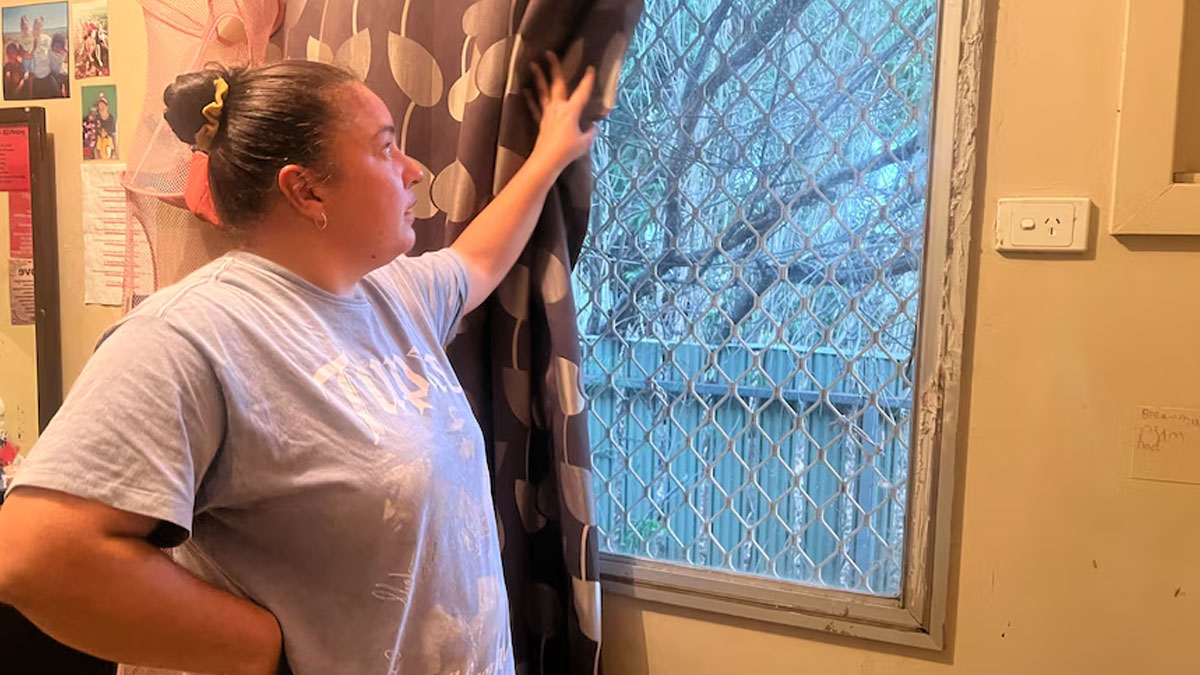
Savannah Victor would often drive around town at night during wet season to soothe her baby daughter to sleep with the car's air conditioning.
Stretching between October and April, wet season temperatures in Broome, 2,000 kilometres north of Perth, routinely average close to 40 degrees with little relief after dark.
As a single mother-of-three, it was one of the many adjustments Ms Victor made after moving into a public housing unit without cooling and proper insulation.
Her landlord — Western Australia's Department of Communities — said she would need to pay out of her own pocket to install air conditioning which the department would also need to approve.
Struggling to meet the $400 outlay, her family eventually helped her acquire a budget, inefficient air conditioner.
Despite having bought a better unit and kept her blinds closed all day, she said she still struggled a decade later to stay cool in the house.
She said she still moved her mattress into the lounge room — the only area with air conditioning — to sleep with her kids.
She said she knew of other families struggling in far worse conditions.
"You become uncomfortable, your emotions are heightened ... that's not good for your mental health," she said.
"Having too much stress in your body causes sicknesses."
Air conditioning is not mandatory in public and community housing in northern WA and many houses haven't received significant renovation in decades.
Residents, often low-income and vulnerable, buy cheap, poorly installed units in houses where the cool air is poorly retained.
A 2022 report by the Kimberley Community Legal Centre found tenants endured extreme heat in poor-quality housing, couldn't afford air conditioning and suffered heat stress health impacts.
More recently it has become the subject of a class action into the living conditions of WA's public housing residents.
[Source: abc.net.au]
Stay tuned for the latest news on our radio stations

